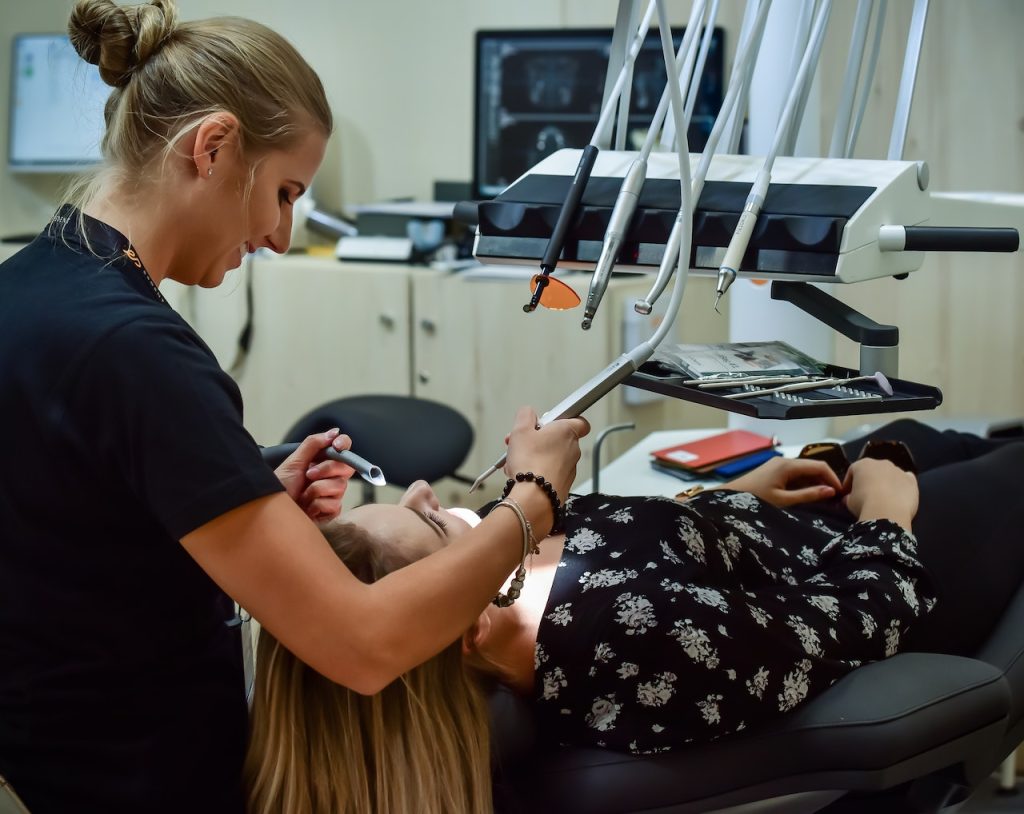Do you have growing tooth sensitivity? You’re not alone. In fact, according to the National Institute of Dental and Craniofacial Research, about 1 in 8 people experience tooth sensitivity. Tooth sensitivity can be caused by several things, including receding gums, worn enamel, and exposed dentin.
1. Understand What’s Causing Your Tooth Sensitivity
When it comes to your teeth, sensitivity can be a real pain. But what exactly causes tooth sensitivity?
Tooth enamel is the hard outer layer of your teeth that protects them from damage. When it wears down, it exposes the dentin, a softer layer of your teeth full of tiny pores. These tiny pores can be irritated by hot and cold temperatures, leading to tooth sensitivity. This can also lead to sensitivity if you have worn down your tooth enamel by brushing too hard or eating acidic foods.
Another common cause of tooth sensitivity is receding gums. This occurs when your gums start to pull away from your teeth, exposing the root surfaces. The roots are not as well protected as other parts of the tooth and can be easily irritated by hot and cold drinks or food.
2. Don’t Ignore the Problem
While you can do a few things to help reduce tooth sensitivity, it is important to visit your dentist if the problem persists. Your dentist may be able to recommend additional treatments that can help reduce your discomfort.
So don’t ignore the problem – take steps now to ensure that tooth sensitivity doesn’t become a larger issue in the future. With proper care, you should be able to find relief from sensitive teeth in no time!
The cost of dental health services is nothing compared to the peace of mind that comes with improved oral care. By taking the time to understand what’s causing your tooth sensitivity and working with an experienced dental professional, you can help ensure that your teeth remain healthy for years to come.
3. Talk to Your Dentist
It’s important to talk to your dentist about any concerns you have regarding your oral health. Doing so can ensure you get the best possible care and treatment. Here are some things to keep in mind when talking to your dentist:
Be honest: Be sure to tell your dentist about any changes in your oral health, such as new pain or sensitivity. This information will help them make an accurate diagnosis.
Be specific: When describing symptoms, be as specific as possible. This will help your dentist narrow down the potential causes.
Ask questions: Don’t be afraid to ask questions! Your dentist should be able to explain things in a way you can understand. If there’s something you need clarification on, ask.
Be open to treatment options: There may be more than one way to treat a dental problem. Be open to hearing about different options and discuss the pros and cons with your dentist.
4. Home Remedies for Sensitive Teeth
A few things can be done to help with sensitive teeth. One home remedy is swishing cold water in your mouth for a minute. This can help to numb the area and provide relief. Another home remedy is to mix a teaspoon of salt with a cup of warm water and use it as a mouthwash. This can also help to numb the area and provide relief.
If you are experiencing sensitivity in one tooth, consider using a desensitizing toothpaste. There are several of these on the market, and they can effectively reduce sensitivity. You may also want to avoid eating or drinking very hot or cold foods, and beverages as this can aggravate the problem.
5. Prevention is Key
Prevention is always better than cure when it comes to your health. By making healthy lifestyle choices and being proactive about your health, you can help prevent many diseases and conditions.
Some simple tips for staying healthy include: eating a balanced diet, exercising regularly, getting enough sleep, and avoiding smoking and excessive alcohol consumption. Additionally, getting regular check-ups with your doctor and staying up-to-date on vaccinations is important.
Bottom Line
Dental health is as important as any other aspect of health, and it’s best to stay on top of it. Sensitive teeth can be uncomfortable and even painful, but treatments are available to help. Additionally, being proactive about your health with lifestyle choices and regular check-ups can help prevent many diseases or conditions that may arise in the future. Taking care of yourself is always important – both mentally and physically!
